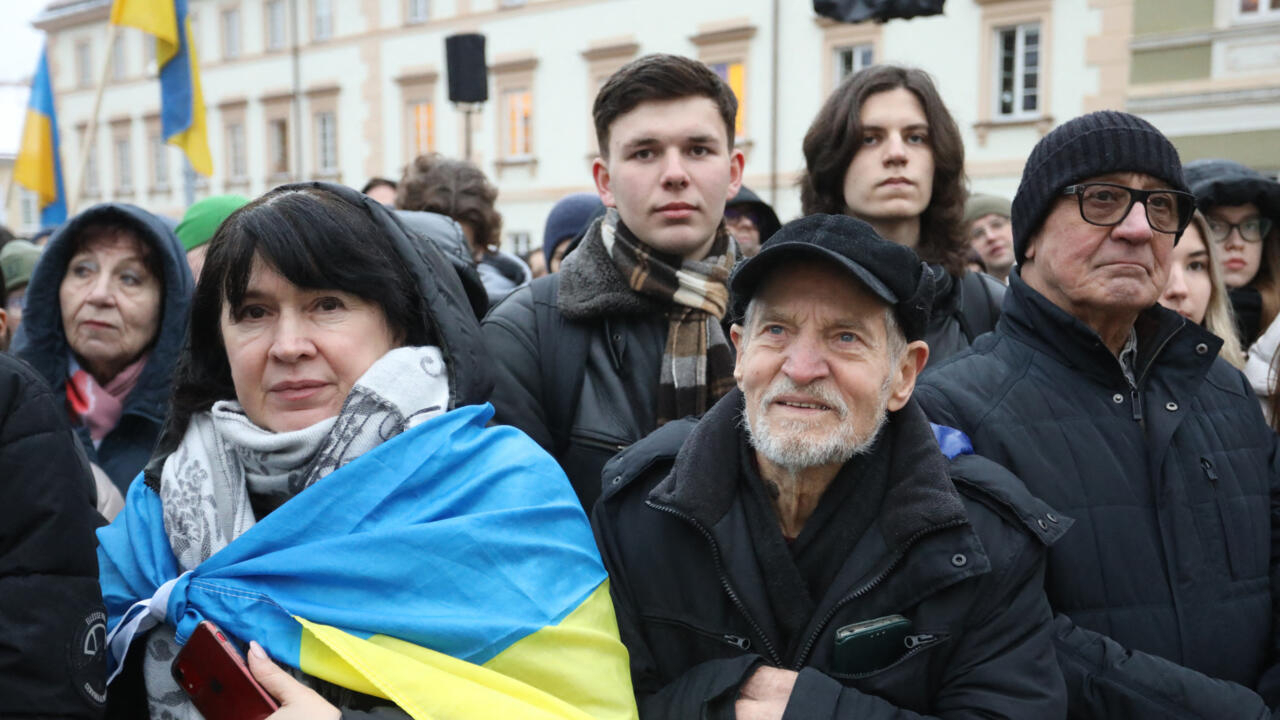Lithuania’s Minister of Culture, Simonas Kairys, conversed with FRANCE 24 regarding Lithuania’s stance against Russian disinformation and the profound connection the Baltic nation feels with Ukraine.
In March 1990, Lithuania made history by being the first nation to assert its independence as the Soviet Union disintegrated. This act served as a beacon for other states previously under Kremlin’s influence. Transitioning into a fledgling democracy post-Soviet era, Lithuania embraced the opportunity to rediscover its rich history and culture.
Nevertheless, Vilnius has once again found itself in Moscow’s crosshairs. Russia has mourned the downfall of the Soviet Union, portraying Russians as innocent victims of a historical tragedy. In light of the February 2022 invasion of Ukraine, Russia launched a disinformation campaign targeting Kyiv’s Western allies.
Aside from exerting pressure on Ukraine’s supporters, the Kremlin resorted to intimidation tactics. Notably, Russian authorities placed Minister Simonas Kairys, Estonian Prime Minister Kaja Kallas, and other Baltic officials on a wanted list in February. This move was a response to their efforts to remove WWII-era Soviet soldier monuments, actions perceived by Moscow as affronts to history.
Upon learning of his listing, Minister Kairys remained nonchalant, stating, “I’m glad that my work in dismantling the ruins of Sovietisation has not gone unnoticed.”
FRANCE 24 engaged with Kairys to delve into the significance of countering Russian propaganda and Lithuania’s deep investment in the Ukrainian situation.
What historical narratives has Russia attempted to distort concerning Lithuanian independence?
Simonas Kairys: Russia continues to exhibit imperialistic tendencies. Their inclusion of my name on their wanted list reflects their belief that former Soviet Union territories like sovereign Lithuania are still under Russian domain. Russia’s legal framework, even in free nations, deems acts like “destroying monuments to Soviet soldiers” punishable by imprisonment. Their interpretation of global affairs is incredulous. By asserting authority over Soviet heritage in countries like Lithuania, Russia insinuates these nations lack autonomy. We reject this false historical narrative.
Why is countering Russian disinformation critical for Lithuanian national security?
This endeavor transcends Lithuania—it is pivotal for the EU, Europe, and the entire free world. The proximity of the Ukrainian conflict to the EU underscores the significance of this battle. Culture, heritage, and historical memory are battlegrounds as evidenced by my inclusion on the wanted list. Russia’s pervasive misinformation campaigns necessitate vocal opposition. Collaborative efforts between Lithuania, Ukraine, and France have made strides in this arena.
During France’s EU presidency in early 2022, joint declarations led to actions against Russia, including the designation of six Russian TV channels as undesirable on EU soil. This marked a milestone in recognizing information as a weapon. It is imperative to discern that all Russian-originated content—be it news, shows, or other productions—is tainted with disinformation. As technology advances, societies must cultivate critical thinking to combat these narratives effectively.
Has the war in Ukraine impacted Lithuanian life and culture?
The essence of this conflict underscores the fight for freedom. Culture plays a pivotal role in this battle, serving as the foundation for Putin’s justifications for the war. Collaborations with Ukrainian artists are vital to showcase Ukraine’s resilience and ongoing fight. Amidst adversity, maintaining traditions, cultural legacies, and daily life becomes a potent response to aggression. This fight extends beyond defense systems—it encompasses living, working, creating, and preserving cultural heritage as a testament to resilience.
